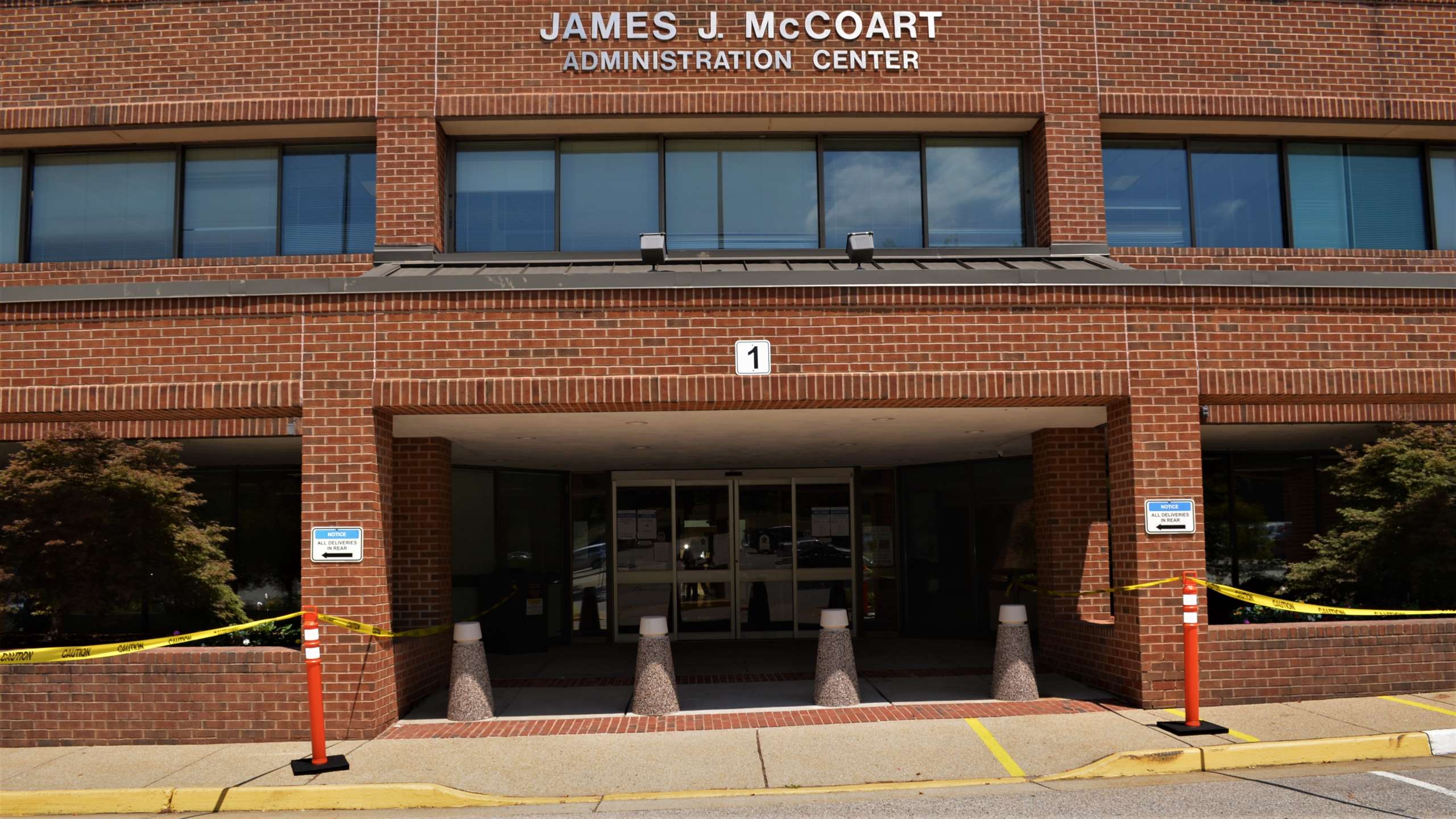In Virginia, ‘patchwork’ of ordinances makes public-sector organizing a maze
by Virginia Mercury
Jan. 17 is the date when Prince William County teachers and staff will begin voting on whether to join the growing number of public-sector workers who have maneuvered through Virginia’s maze of collective bargaining ordinances.
Thirty-seven percent of U.S. workers employed by state and local governments belong to a union, compared to only 7% of private-sector employees, according to Gallup, Inc.’s 2021-22 Work and Education survey.
But for years, those statistics wouldn’t have included local government workers in Virginia, where collective bargaining had been paused in 1977 after a Virginia Supreme Court ruling stopped local governments from bargaining with their employees.
Then, in 2020, the newly Democrat-controlled General Assembly passed legislation empowering local governments to allow collective bargaining, while leaving them free to decide the specifics. House Bill 582 took effect in May 2021.
David Broder, president of Service Employees International Union (SEIU) 512 Virginia, called the law “the most important piece of labor law reform” but said that “at the same time, it is the smallest of first steps. The legislature needs to realize that that patchwork system, that instability, is bad for Virginia. … Ordinances look different in every locality.”
Eric Paltell, an attorney with Maryland-based law firm Kollman & Saucier who is outside counsel for the Prince William School Board, called the law “an arcane process” that allows counties, cities, towns and school boards to reach various agreements with employees, sometimes leading to different agreements within one county.
In Prince William County, it was the eight-member school board that authorized the two bargaining units that vote this month. One, the school system’s classified staff bargaining unit, includes bus drivers, food service workers and janitorial staff. The certified staff bargaining unit is made up of teachers, nurses, counselors, librarians and social workers. The county has about 4,000 classified employees and about 7,000 state-certified employees.
The mechanics of voting have been complicated to work out, according to Paltell. After votes are cast, a third party must determine whether 50% of employees in each bargaining unit voted. If so, and if the union wins the majority of the votes cast, it then becomes the exclusive representative for employees in that bargaining unit.
Prince William’s requirement that 50% of employees in the bargaining union must turn out to vote “is more the exception than the rule,” Paltell said, but “it’s not quite as onerous as some” localities’ criteria.
Mel Borja, a policy analyst for the Commonwealth Institute for Fiscal Analysis, a progressive think tank that advocates for strengthening collective bargaining rights, noted that the process of moving from interest in unionizing to actual contract bargaining “can take a long time. It’s an ever-evolving space.”
But Borja said she sees signs of activity now taking place in areas such as Virginia Beach, Norfolk and Charlottesville, as well as in Northern Virginia and Richmond.
Broder said he’s also seeing interest across the commonwealth. His union represents more than 4,000 public service employees — home care providers, nurses, social workers, sanitation workers, inspectors, librarians and park staff — in Prince William, Fairfax, Loudon and Richmond.
Although the state leaves it up to localities to decide whether or not to allow collective bargaining, once bargaining rights are secured, they generally cover the same territory, he said — pay, benefits, working conditions and terms of employment.
One concern, Broder added, is that it remains illegal under Virginia law for public-sector workers to strike.
“No local ordinance can change that,” he said. “We have seen some localities try to weaponize that” by trying to frame actions by individuals as unlawful union activity.
Since the collecting bargaining prohibition was lifted, the cities of Alexandria and Richmond and Arlington, Fairfax, Loudoun and Prince William counties have passed some type of ordinance or resolution allowing public-sector collective bargaining.
A similar pattern has emerged in the efforts to organize teachers, with Northern Virginia and Richmond taking the lead.
In December 2021, the Richmond School Board approved a resolution allowing teachers and other school staff the right to join a union and bargain collectively. And the following December, the Richmond Education Association’s four bargaining units approved tentative contracts with the school system’s administration.
In June, the Arlington School Board voted unanimously to authorize collective bargaining for teachers and staff.
In October, the Prince William County School Board passed its collective bargaining resolution.
And in December, Fairfax County Public School administrators presented a draft resolution to the school board to allow employees to organize.
Prince William County organizers said they’ve seen misunderstanding and opposition to teachers’ efforts to unionize.
Maggie Hansford, president of the Prince William Education Association (PWEA), said that in discussions about unions, the public and public officials often focus just on compensation. But while she said compensation is an important issue — “We are second to last in pay in Northern Virginia,” she said — it’s not the only issue that matters to educators.
There’s not enough understanding of teachers’ concerns for other critical issues such as health, safety and “the basic human right to have a say in our career and work environment,” according to Hansford.
“We want employees to be able to say: ‘This is what I need for my students.’ When educators are making decisions there is a better learning environment for students,” she said.
Quality of education and working conditions are also major concerns for educators, “especially after COVID,” said Jerod Gay, an organizer who teaches language arts in Prince William County Public Schools. The problem is not only worries about the disease itself, but the disruption it has triggered in the schools, according to Gay: “It caused a lot of people to leave the division or the profession altogether. As people have left, it’s created an even bigger strain on the people who have to pick up the slack.”
That’s because often, he said, newcomers “haven’t been through the normal professional development. They have none of the pedagogical experience. They’re not certified and are limited in the tools they have.”
Gay said he believes that teachers who take the lead in organizing are often seen as too “progressive.”
“We’re receiving resistance where other people are not,” he said. “We are targets of demonization.”
But Gay also said he is seeing “a renaissance of class consciousness. When I was growing up, the mentality people had was that unions were unnecessary at best, at worst they hurt. Over time, as people see lower wages and can’t afford to pay their bills, they get desperate” and rediscover unions.
Data show a shift in attitudes about union representation. According to Gallup, 71% of Americans now approve of labor unions, the highest percentage the polling organization has recorded on this measure since 1965. And the National Labor Relations Board reported a 57% increase in union election petitions filed during the first six months of fiscal year 2021.
Broder attributes some of that shift in attitude to the pandemic.
One thing COVID made clear “is how much we need a safe and healthy workplace and also how much inequity there is,” he said, pointing out that unsafe work is disproportionately done by people of color and women who lack paid sick days and safe scheduling.
As a result of that concern, “workers are organizing in the public and private sector, across race and gender,” Broder said. “The public sector and the private sector are inspiring each other.”
(Virginia Mercury is part of States Newsroom, a network of news bureaus supported by grants and a coalition of donors as a 501c(3) public charity. Virginia Mercury maintains editorial independence. Contact Editor Sarah Vogelsong for questions: info@virginiamercury.com. Follow Virginia Mercury on Facebook and Twitter.)


